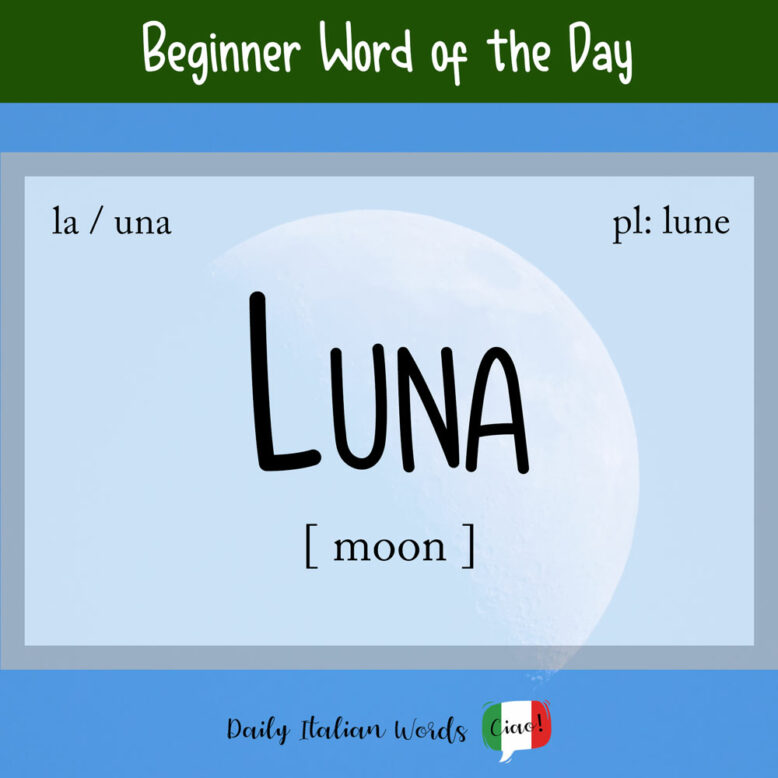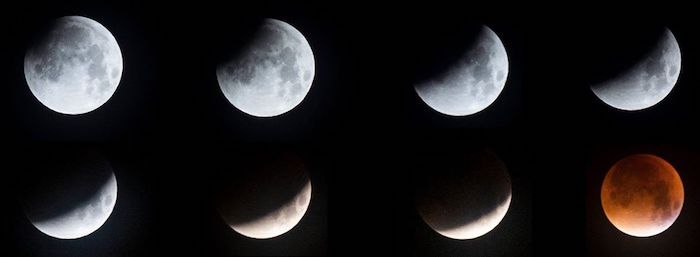The name given to the celestial body that orbits around our earth is luna (feminine, plural: lune) in Italian.

La luna impiega un mese per orbitare intorno alla terra.
The moon takes a month to orbit around the earth.
Just as in English, it is also the word used to denote the natural satellite of any planet, not just the Earth.
Quante lune ha Saturno?
How many moons does Saturn have?
To describe various phenomena related to the moon, the adjective lunare (lunar) is often used. For example, a lunar eclipse translates as eclissi lunare whereas lunar landing becomes atterraggio lunare.
The moon goes through four main lunar phases during its 30-day trip around the earth:
- luna nuova = new moon
- primo quarto = first quarter
- luna piena = full moon
- ultimo quarto = last quarter
When it is waxing, it is called la luna crescente whereas the waning moon is called la luna calante.

The word Monday in English gets its name from the Anglo-Saxon word ‘mondandaeg‘ which translates to the moon’s day. In the same way, Italian gets the word lunedì (Monday) from the Latin ‘Lunae dies‘ or giorno della Luna.
Below are a few other useful terms related to the moon in Italian:
- chiaro di luna = moonlight
- raggio di luna = moonbeam
- mezzaluna = half moon
- falce di luna = crescent moon
Did you know that…?
The word lunatico – or lunatic in English – comes from the belief that changes in the moon were the cause of intermittent insanity.
Expressions featuring the word ‘luna’
Avere la luna storta / di traverso
Literal translation: to have a twisted / askew moon
English meaning: to be in a bad mood, to wake up on the wrong side of the bed
Luna di miele
Literal translation: moon of honey
English meaning: honeymoon
Aspettarsi la luna
Literal translation: to expect the moon
English meaning: to expect/ask for the moon, to expect too much
Heather Broster is a graduate with honours in linguistics from the University of Western Ontario. She is an aspiring polyglot, proficient in English and Italian, as well as Japanese, Welsh, and French to varying degrees of fluency. Originally from Toronto, Heather has resided in various countries, notably Italy for a period of six years. Her primary focus lies in the fields of language acquisition, education, and bilingual instruction.


